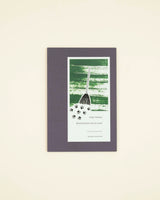Most recently displayed products
What is Japandi?
Japanese interiors are as popular as ever - and for good reason. The Japanese style has many features in common with the Scandinavian style.
Japandi is used for the style where elements from Japanese and Scandinavian design are combined. Here, the focus is on simplicity and good craftsmanship. The use of light wood, natural materials, calm colors and design is where the two styles especially meet and unite.
For us personally, the fusion between the Japanese and the Scandinavian consists in combining the things that we love most about the two worlds: good craftsmanship, minimalism, colors and calm.

Interior design inspiration
Get the Japandi style at home



★★★★★
Beautiful posters and ceramics at Seramikku
Have bought both posters and ceramics from Seramikku/Taisho several times - beautiful motifs, no chips or broken ceramics! Great quality all the way through. And super fast delivery!
- Anne, Trustpilot
★★★★★
Japanese quality and good Danish service
Before purchasing the fine Japanese tool boxes online, I had a question, which was quickly answered with additional pictures. The order was shipped immediately and the quality does not disappoint. They are so well made that I expect to have them for the rest of my life.
- Annette, Trustpilot
★★★★★
Sweet and helpful and very service-minded!
When purchasing a wedding gift, we experienced great helpfulness - and service that was beyond the ordinary! They did everything they could to ensure that the gift arrived on time, even though it was out of stock and they had to get it home first. 5 stars from here!
- Margit, Trustpilot
★★★★★
Seramikku has the most beautiful selection of Japanese ceramics.
Everything can be mixed and there is plenty of image inspiration on the website etc.
Online shipping is fast and secure.
I haven't bought any Japanese ceramics from Seramikku yet.
- Busk-Johansen, Trustpilot
★★★★★
Fantastically fast shipping and very beautiful products.
I ended up ordering a fairly large order as I couldn't choose and all items were a great joy. So everything is kept. And so lovely to receive the bowls wrapped in Japanese newspapers.
- Susanne, Trustpilot
★★★★★
Just shopped at Seramikku for the first time.
Fast receipt of the finest goods in the best quality. If you follow Seramikku on insta or read a little deeper into the webshop you get the finest info about Japan. Super good style! You get a really good impression of the people behind Seramikku!
Well done 🌟
- Theresa, Trustpilot
































